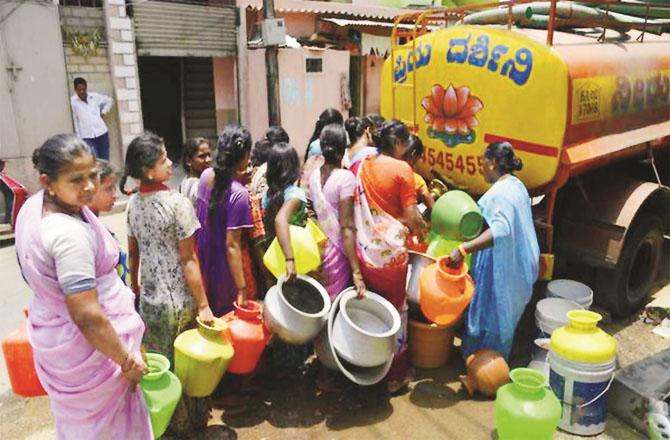Bengaluru Students Adapt to Online Classes Amid Water Crisis

In the bustling city of Bengaluru, where technology thrives and aspirations soar, a different kind of challenge has emerged—one that flows from the taps and wells that once quenched the city’s thirst. The water crisis has cast its shadow over the Silicon Valley of India, leaving students and educational institutions grappling with an unprecedented situation.
The Thirsty City
Bengaluru, Karnataka’s capital, is no stranger to rapid urbanization and population growth. However, the recent scarcity of water has brought the city to its knees. Borewells have run dry, and the once-abundant water sources are now parched. The Indian Meteorology Department attributes this predicament to the El Nino effect, resulting in scanty rainfall during the crucial monsoon season.
Schools and Students Adapt
As the water crisis deepens, schools and colleges find themselves at a crossroads. Faced with the challenge of providing basic amenities to their students, educational institutions have turned to innovative solutions. Here’s how they’re adapting:
- Online Classes: A coaching center in Vijayanagar swiftly responded to the emergency by shifting its classes online. Students, accustomed to physical classrooms, now log in from the comfort of their homes. The virtual whiteboard replaces the blackboard, and the hum of air conditioners is replaced by the gentle whir of fans.
- Bannerghatta Road School: Another institution, located on Bannerghatta Road, took a similar step. Recognizing the severity of the water shortage, they suspended regular classes and encouraged students to attend virtually. The school corridors, once bustling with laughter and chatter, now echo with the soft clicks of keyboards.
Challenges and Resilience
While the transition to online learning has its advantages—reduced commute time, flexibility, and personalized attention—it also poses challenges. Not all students have access to stable internet connections or quiet study spaces. Some miss the camaraderie of classmates and the spontaneity of face-to-face interactions.
Yet, Bengaluru’s students exhibit remarkable resilience. They adapt, finding solace in digital textbooks, video lectures, and virtual group discussions. Their determination to continue their education despite adversity is commendable.
A Call for Collective Action
The water crisis in Bengaluru serves as a wake-up call for sustainable practices. It urges citizens, policymakers, and institutions to rethink water management, conservation, and distribution. Rainwater harvesting, efficient water use, and community awareness are essential steps toward a more resilient future.
As the city grapples with its water woes, students remain the torchbearers of hope. They navigate the digital landscape, armed with laptops and determination, proving that even in the face of adversity, learning knows no bounds.
Leave a Reply